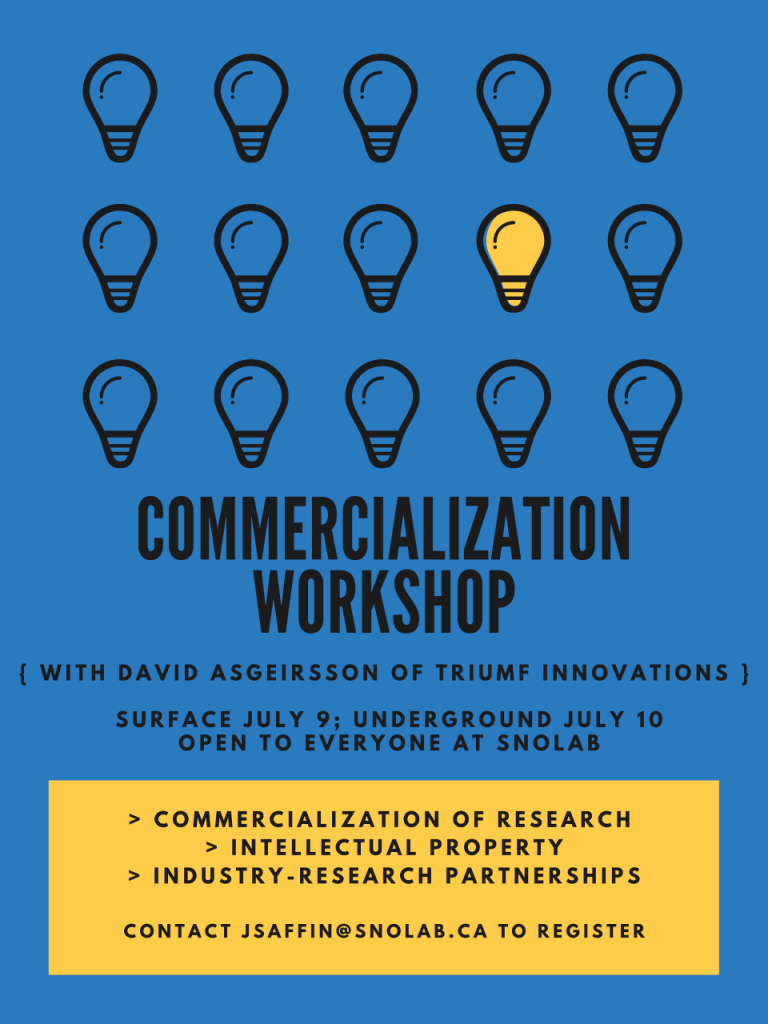Innovation and Commercialization at SNOLAB

Last week, SNOLAB hosted David Asgiersson of TRIUMF Innovations as he delivered workshops on commercializing research products. During these workshops, he gave an overview of the legalities of commercialization and intellectual property, as well as the different options researchers have if they want to pursue patents and eventually profit from spinoff applications of technology that comes from their experiments.
One of the idiosyncrasies of fundamental research is a direct result of its fundamental nature: it is often difficult, at the outset, to pinpoint exactly which components of it will ultimately turn into technologies we take for granted, woven into the fabric of modern day-to-day life. When the electron was discovered, no one knew that it would one day be used to power cities.
As it happens, fundamental physics research drives considerable innovation with regard to new techniques and technologies. These experiments can only operate under a very specific set of conditions – successfully achieving these conditions often requires years of R&D. Sometimes these technologies (even ones that don’t ultimately get used in an experiment) have value beyond their direct contribution to the research. They have the potential to become a viable commercial product, used by others in similar research or in entirely different applications. Over the past decade, particle therapy for cancer patients has developed using techniques and particles which were initially used for fundamental physics research.
The challenge of course, is that a traditional academic career doesn’t exactly prepare researchers and engineers for the process of commercializing a product. It requires a shift from pursuing ideas and asking questions to pursuing patents and funding and asking how to make your product appealing.
This is where David Asgeirsson comes in – he did a PhD in physics and over the past fifteen years has gained extensive startup experience, and in taking research innovations through the commercialization process. He understands the situation from both sides, and can relate to physicists interested in developing their work. At the same time, he has extensive experience working with patents, intellectual property law, and successfully securing funding for startups.
– Jenna Saffin